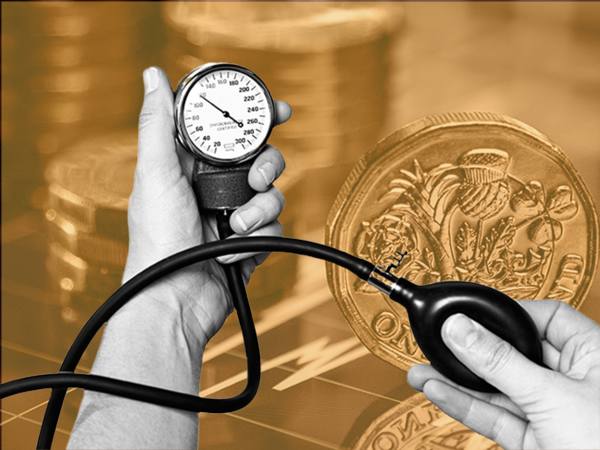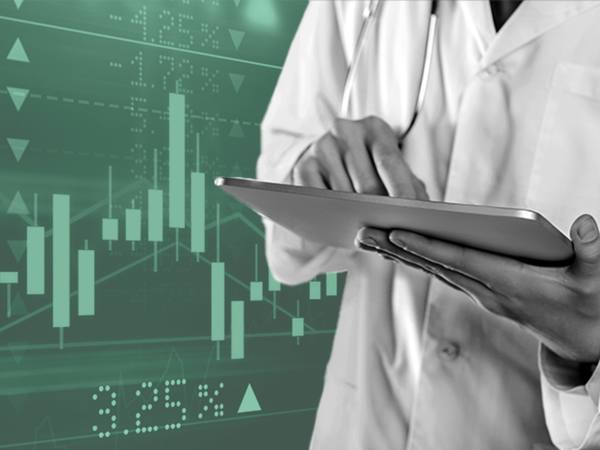Cheryl is age 40 and self-employed, but has lost all her summer work following the cancellation of sporting events. She doesn't have a workplace pension, but has been investing in an individual savings account (Isa) for 18 months and recently started a self-invested personal pension (Sipp).
Isa and Sipp invested in funds and shares, residential property and cash
Retire in France, build up retirement fund over next 15 to 20 years, draw 5 to 6 per cent a year from investments from between 55 and 60, pay down mortgage on French property by time I retire
She and her husband live in military accommodation, and own two buy-to-let properties worth about £110,000 and £87,000 with mortgages of £64,000 and £49,000, respectively. These generate an income of £900 a month, which covers the mortgage repayments and costs.
“When my husband retires we plan to live in our home in France,” says Cheryl. “This property is worth about €270,000 (£234,491.16) and we owe a mortgage of €78,000 on it. This has to be paid over the next 12 years, so the property should be mortgage-free by the time we retire.
“My husband will receive a full military pension, but we would like to build up a further retirement fund over the next 15 to 20 years. We currently reinvest dividends, but from between the ages of 55 and 60 would like to start taking 5 per cent to 6 per cent a year from our investments.
“I would like our investments to lose as little as possible in any given year, so aim for only 10 per cent of them to be high risk, 50 per cent of them to be medium risk and 40 per cent to be low risk.
“I am thinking of topping up my holding in GlaxoSmithKline (GSK) and waiting to buy back into Halma (HLMA) at a lower price. I am looking for an emerging markets fund, and wondering whether to invest in Diageo (DGE) and add Alliance Trust (ATST) to my Sipp?"
| Cheryl and her husband's portfolio |
| Holding | Value (£) | % of the portfolio |
| Aviva (AV.) | 1,019 | 0.26 |
| Regional Reit (RGL) | 817 | 0.21 |
| Royal Dutch Shell (RDSB) | 3,123 | 0.8 |
| Legal & General (LGEN) | 1,179 | 0.3 |
| Primary Health Properties (PHP) | 1,425 | 0.37 |
| Bluefield Solar Income Fund (BSIF) | 1,245 | 0.32 |
| GlaxoSmithKline (GSK) | 2,515 | 0.65 |
| BP (BP.) | 1,654 | 0.42 |
| DS Smith (SMDS) | 731 | 0.19 |
| Vodafone (VOD) | 1,277 | 0.33 |
| Kingfisher (KGF) | 627 | 0.16 |
| Rockhopper Exploration (RKH) | 80 | 0.02 |
| UK Oil & Gas (UKOG) | 77 | 0.02 |
| Unilever (ULVR) | 3,330 | 0.86 |
| Glencore (GLEN) | 429 | 0.11 |
| Lloyds Banking (LLOY) | 1,640 | 0.42 |
| First State Asia Focus (GB00BWNGXJ86) | 2,806 | 0.72 |
| Franklin UK Opportunities (GB00B76GK996) | 2,147 | 0.55 |
| Fundsmith Equity (GB00B41YBW71) | 3,143 | 0.81 |
| Legal & General International Index Trust (GB00BG0QP604) | 2,896 | 0.74 |
| LF Lindsell Train UK Equity (GB00BJFLM263) | 2626 | 0.67 |
| HSBC (HSBA) | 1,000 | 0.26 |
| LF Blue Whale Growth ( GB00BD6PG563) | 488 | 0.13 |
| Slater Growth (GB00B7T0G907) | 459 | 0.12 |
| HSBC MSCI World UCITS ETF (HMWO) | 940 | 0.24 |
| Scottish Mortgage Investment Trust (SMT) | 946 | 0.24 |
| Buy-to-let property minus mortgages | 84,000 | 21.57 |
| Holiday home minus mortgage | 166,826 | 42.84 |
| Cash | 100,000 | 25.68 |
| Total | 389,445 |
NONE OF THE COMMENTARY BELOW SHOULD BE REGARDED AS ADVICE. IT IS GENERAL INFORMATION BASED ON A SNAPSHOT OF THIS INVESTOR'S CIRCUMSTANCES.
THE BIG PICTURE
Chris Dillow, Investors Chronicle's economist, says:
You plan to retire to France, which exposes you to currency risk. If sterling falls, your investments will buy you less in euros than you’d expect. And there is a very relevant circumstance in which sterling would be likely to fall – if global investors become more risk averse. This is because sterling is considered to be riskier than US dollars or euros, so when investors lose their appetite for risk they dump sterling in favour of those currencies.
In the near future this is not a problem and, if anything, the opposite. This is because if investors rediscover their appetite for risk sterling could rise along with equities, giving you a double win.
But over the next 20 years another bear market and drop in sterling is pretty much inevitable. So as you approach retirement shift into euro-denominated assets and hold fewer equities, because these might fall at the same time as sterling.
You have a long-term investment horizon, which should influence how you invest. And because of this you are very right to reinvest dividends. Over the long term, it’s likely that most returns will come from dividends rather than growth, even if share prices bounce back strongly from their current lows. This doesn't mean you should buy high-yielding stocks, as a high yield is often only compensation for high risk or expectations of low growth. Rather, it means that you should not spend your dividends.
It also means that your investments must be resilient to huge changes in the economy and investment environment. Twenty years ago investors were piling into tech stocks and ignoring old-economy companies such as Unilever (ULVR) and the oil majors. We were looking forward to high and stable economic growth, while the bank rate was at 6 per cent, meaning that savers could get a decent safe income.
Today, that seems like a different world and highlights that over an investing lifetime we must be ready for big and unpredictable changes. So your preference for large defensive stocks such as Unilever, GlaxoSmithKline and the oil majors seems sensible.
But it’s not enough. Historically, such shares have outperformed, in part, because a few years ago investors were underpricing monopoly-type stocks. This was because they didn’t appreciate the importance of what renowned US investor Warren Buffett calls “economic moats” – ways in which companies can grow profits by fending off competition. However, investors have since wised up to that error, so the future relative returns of these types of stocks might not be so impressive.
Freddie Cleworth, chartered wealth manager at EQ Investors, says:
Buy-to-let properties are not as tax-efficient as they used to be. So at some point prior to retirement consider realising equity from these properties and shifting the proceeds into more liquid investments, if necessary, to draw an income. Also use your tax-efficient allowances where possible, such as your annual Isa allowance, which is currently £20,000, and any pension allowance you are eligible for. For example, if you have no earnings at present this is £3,600 gross per year. This is a good habit which you already seem to have.
The global pandemic has made life difficult for a lot of people, so well done for still dedicating some time to reviewing your finances.
Rachel Winter, associate investment director at Killik & Co, says:
You want 40 per cent of your investments to be low risk, but at the moment all of your investments are direct equity holdings or equity funds, which are generally deemed high risk. You have at least 15 years until you can access the assets in your Sipp, which is a long time horizon and, arguably, sufficient time for the market to recover from a fall. So carefully consider what sort of risk you are prepared to take to generate your retirement fund.
A good test of your risk appetite is to assess your response to a market fall. How did you react when the market fell 35 per cent in March? If you were able to tolerate this volatility it would suggest that your current asset allocation is right for you. But if the market fall was a cause of severe distress then a reduction in risk may be warranted.
Typically, low-risk investments include assets such as cash or government bonds. But at the moment these assets offer such low rates of return that investors in them run a different kind of risk – that the value of holdings will be eroded by inflation.
I assume that you incur dealing fees and custody fees for each of the individual holdings in the account. Costs can have a significant impact on long-term returns and it may be that only holding funds, rather than funds and direct shareholdings, would be more cost-effective.
HOW TO IMPROVE THE PORTFOLIO
Chris Dillow says:
Remember the wise words of economist John Maynard Keynes, that our knowledge of any stock’s future return is “usually very slight and often negligible”. Our opinion of any company’s growth prospects might well be mistaken – especially over longer time periods – because we cannot tell the pace or direction of future technical change.
So, for example, will artificial intelligence render some current companies redundant and, if so, which ones? Will it cause a long-term depression by putting people out of work? Or could artificial intelligence depress wages and increase the profits of some companies?
The simple answer is that nobody knows. So investment portfolios should be resilient to unforeseeable changes. The simplest way to make them more resilient is to invest in global equities tracker funds. By holding these you forego the stockpicking errors of active fund managers [and your own mistakes if you invest in equities directly], as even the smartest stockpickers are surprised by the winners and losers of creative destruction. Global tracker funds are, in effect, funds of all the world’s equity funds – but much cheaper than funds of funds.
Freddie Cleworth says:
Your attitude to risk looks relatively balanced, although your Isa and Sipp are quite adventurous as they are invested almost entirely in equity investments. And many of these are direct shareholdings which experience greater volatility. If you would like to lose as little as possible in any given year you should reduce your equity allocation.
You hold many large blue-chip companies in your Isa, which historically have been more stable and tended to pay dividends. But the recent market collapse may cause even some of these companies to have cash-flow problems or suspend dividends. You also have considerable exposure to the energy sector, which has been hit heavily this year due to disagreement between oil-producing countries and a global slump in demand.
As many of your Isa holdings are in FTSE 100 companies, it could make sense to get exposure to these via a cheap index tracker instead. You could invest alongside this in some selected specialist funds for exposure to other assets, such as Bluefield Solar Income Fund (BSIF), which you already hold. Or if you don't have a strategy in mind, consider using a globally diverse equity/bond index tracking fund that would suit your risk profile, for example, one with a 60/40 equity/bond allocation.
If you are looking to add an emerging markets fund, options include BMO Responsible Global Emerging Markets Equity (LU1526063463), which takes a long-term growth approach with a focus on quality stocks – particularly valuable attributes in the current investment climate.
Rachel Winter says:
Your investments are heavily focused on the UK, but I think you could benefit from more exposure to great international businesses that have the potential to grow in the post-coronavirus world. The lockdown has forced millions of people to try working from home, and get online deliveries and payments for the first time, and it’s likely that many of these people will never look back. Companies that are involved in these areas are likely to do well. Shares in Amazon (US:AMZN), Microsoft (US:MSFT) and PayPal (US:PYPL), for example, have all significantly outperformed the market during the recent volatility. These major technology businesses are predominantly listed in the US, although they earn revenue from all over the world. The UK is lacking in these types of businesses, one reason why the UK equity market has underperformed the US equity market to such an extent over the past decade.
Your plan to retire in France is all the more reason not to restrict your investments to the UK. If your future expenditure is likely to be in euros, why not invest in some businesses that earn revenue in euros? Doing this would reduce the level of currency risk that you expose yourself to in retirement.











